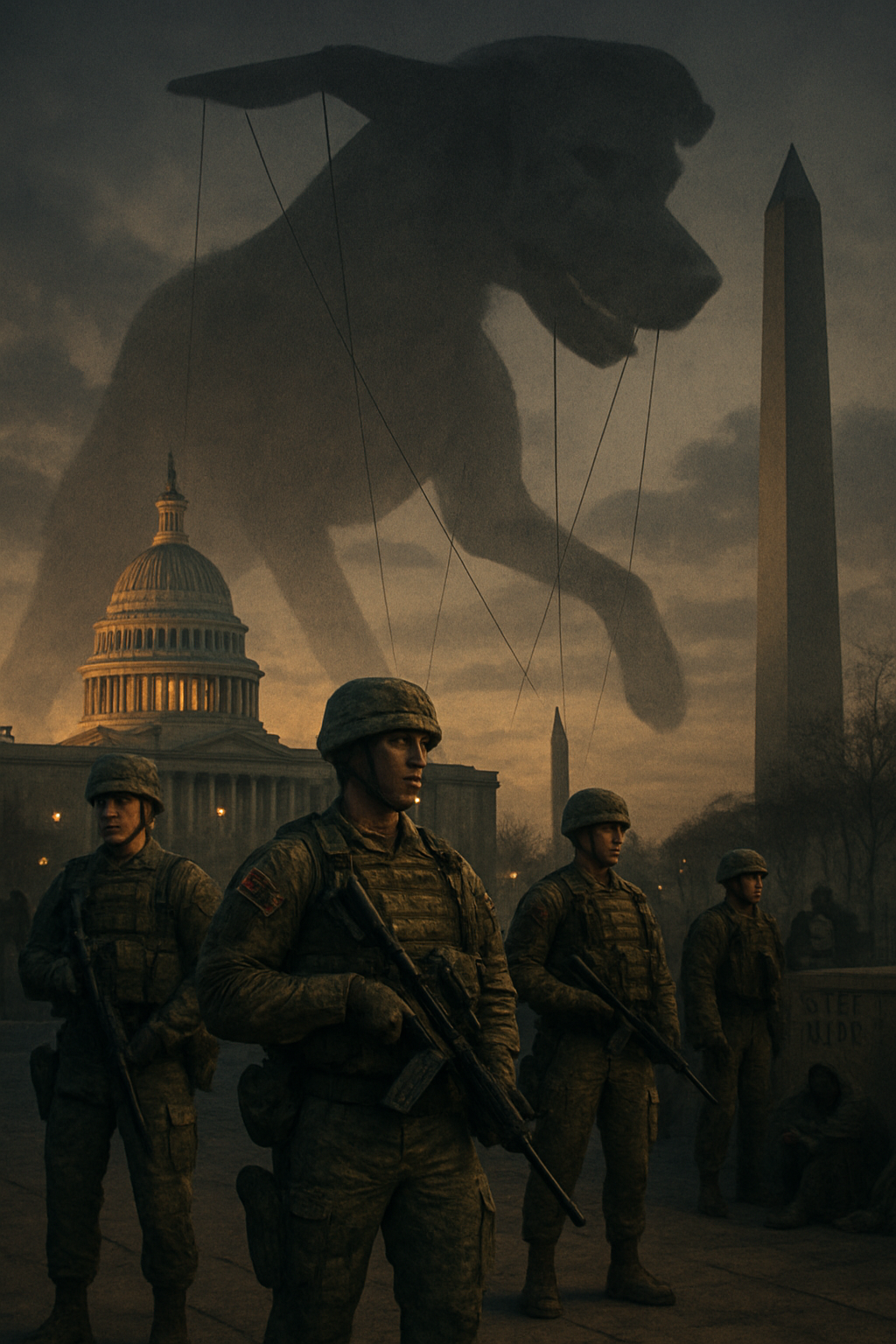Wag the Dog Trump Style or Wag the Trump Dog Style?
Trump's action increasingly looks like a forerunner to further presidential abuse of domestic power. Experts and recent court decisions have indicated that moves like these violate the intentions of the Tenth Amendment.

The claim that the National Guard’s deployment in Washington DC is necessary to control crime and homelessness rings hollow and appears superfluous, given the broader political context and timing. Such action increasingly looks like a forerunner to, or prototype for, further presidential abuse of domestic power—risking a new and dangerous precedent. Although DC is not a state, experts and recent court decisions have indicated that moves like these violate the intentions of the Tenth Amendment, which reserves powers not expressly given to the federal government to the states or the people.
This context grows even more consequential in light of the intensifying scandal surrounding the Epstein files and Trump’s involvement. Recent reporting and public reaction demonstrate overwhelming suspicion that the Trump administration is actively concealing crucial information about the Epstein case, despite earlier promises of transparency. Audio recordings involving Epstein associate Ghislaine Maxwell and top DOJ officials have surfaced, fueling allegations of a cover-up and calls for full disclosure. Trump’s own shifting statements and the administration’s reversal on document release have only magnified those suspicions, eroding public trust and raising serious ethical and legal concerns.
These events draw clear parallels to the film “Wag the Dog”. In the movie, a president caught in a sex scandal just before an election employs spin-doctors and a Hollywood producer to fabricate an international crisis, shifting media attention away from misconduct through an elaborate, manufactured distraction. The staged war is successful at first, but ultimately exposes the manipulative power of narratives and media spectacle to undermine real accountability.
In this case, Trump’s use of the National Guard as a distraction amid the Epstein cover-up mirrors the strategy depicted in “Wag the Dog”—relying on visible exercises of executive power to dominate the news cycle, suppress scrutiny, and attempt to shift the focus away from damaging revelations. This convergence of scandal, media management, and the use of state force represents a direct challenge to constitutional norms and the intended limits on Presidential authority in domestic affairs.
Such actions reveal the willingness of a broken system to turn its military and propaganda machinery inward—shielding elite offenders while silencing the public. Confronting militarization, exposing cover‑ups, and resisting engineered distractions remain essential steps toward justice for survivors and the restoration of democratic transparency.
The clock is now ticking, and you are on the clock.
